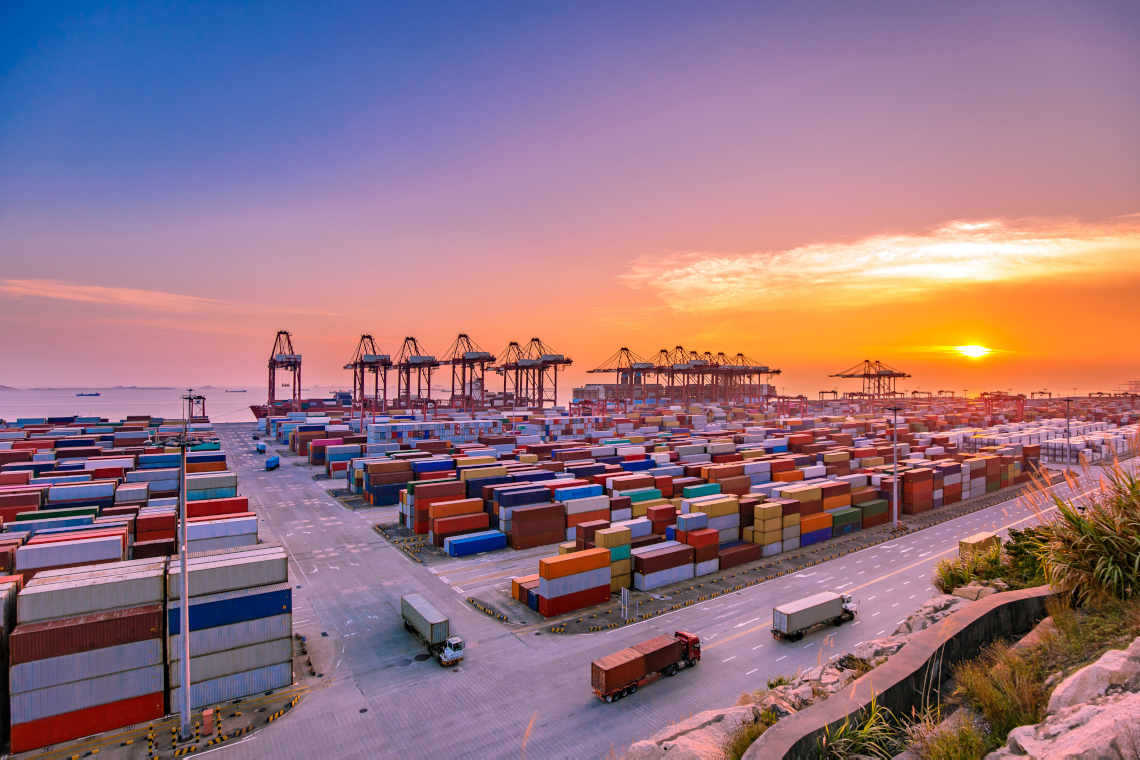貨運市場研究

The cargo market had grown significantly year after year at the turn of the 21st century. The global economy is the main component of rapid growth. Countries transact with each other to trade with different industries and markets, such as the production industry, labor market, and raw materials. The continuous back-and-forth demand and supply cycle from one country to another is made possible by efficient modes of cargo transport.
There are different cargo carriers available, from air freight to water cargo, making it a lucrative investment industry. The market is expected to maintain its growth as the population and need for basic necessities continue to rise.
Introducing the Cargo Market
Cargo, commonly known as freight, describes the goods and produce hauled from one place to another using different modes of transportation, either by air, water, or land. Cargo carriers are different from passenger carriers and don’t fall under the same market. Businesses engaged in the cargo market offer logistics and supply chain solutions.
The market heavily relies on these cargo carriers and all their consequences. Technically, the cargo market also falls under the transportation industry. However, even as a stand-alone market, it contributes trillions of dollars every year. It is even anticipated to grow twice in the next 10 years.
Kinds of Cargo Carriers
The cargo market can be divided into three major components: cargo shipping, air freights, and land logistics. Each division focuses on the mode of cargo transportation involved. Let us further discuss each component below:
Cargo Shipping Market: The mode of transportation involves ships and/or any water vessels. One of the advantages of cargo shipping is its ability to transport bulky goods that land or air freight cannot handle. The shipping market is further segmented into different kinds, depending on the vessel used.
Its biggest drawback is its slower than the other mode of carriers.
Air Freight Market: Commercial or charter air carriers are ideal to transport goods internationally with their fast-speed shipments. It makes air carrier ideal to transport perishable goods, such as fruits and vegetables, and valuable things, such as jewelry and medicine.
Similar to cargo shipping, the air freight market can be further segmented. The segments include express, freight, and mail.
Land Transportation Market: The most common transportation carrier service in the market. It caters to the smallest distributions, such as food deliveries, to bulk orders, such as a car carrier trailer. Consequently, the vehicles included in this carrier service vary in size, from motorcycles to trucks.
However, this segment of the cargo market can also easily fall under the trucking industry.
Importance of Cargo Market Research
The cargo market requires detailed research to understand. The said industry relies heavily on economic growth, international trade, government initiatives, and political influences, all of which can be hard to understand and analyze by a layman.
With cargo market research, it will simplify all details and present all available information. It will focus on relevant data, segregating unrelated ones.
At the same time, the cargo market has a wide scope. Investors can concentrate on the specific segment, acquiring insight into the market landscape and how consumers perceive the businesses’ brand image.
In addition, the cargo market research can also give insight into the industry’s target demographic, and current on-demand marketing strategies, determine market viability, etc.
All in all, it guides investors to take a calculative investment step toward the cargo market.
趨勢和機遇
The cargo market has proved its resiliency over the years. And with the rise of e-commerce, influencing a variety of industries, including the cargo market, the latter is expected to retain its growth.
However, there are other trends and opportunities to look for in the cargo market. Here are some:
- Rise of Retail Industry: E-commerce maintains its positive progress even with the ever-changing economy. Demand, especially in the fashion space, secures the cargo industry with the continuous flow of delivery from one country or city to another.
- Improvements and Infrastructure: Another critical factor is the establishment of new cargo hubs. These kinds of infrastructures were propelled by rising demand for carrier services, especially from vendors. Consequently, it affects the development of better navigation systems, dedicated cargo to cater to different goods, better delivery routes, and other related factors.
- Demand for Speedier Delivery of Pharmaceutical Goods: During the pandemic, the need for immediate delivery of vaccines, oxygen tanks, and other medical goods became a priority. Such delivery service continues to be of utmost importance. Most of these goods require the cargo to take extra measures because of time sensitivity, temperature, and the value of the medicine. Consistent quality cargo service maintains the value and integrity of the medical product.
- Commercialization of Autonomous Vehicles: Many car makers have been developing their driverless autonomous vehicles fit for warehouse and logistics services.
Problems for the Cargo Market
The continuous demand for cargo services and expectations for more innovative strategies also means that the cargo market faces incessant challenges, especially for various carriers.
Understandably, on the investment side, these challenges must be taken into account to avoid fatal financing decisions. Some of these challenges are:
- Oil Spike Price: With inflated prices, it increases the operating expenses of cargo carriers. For bigger vehicles, ships, and aircraft, it also means heftier costs, as larger craft means higher oil consumption.
- Cargo Handling: As the number of deliveries and shipping increases, there is an expectation for cargo handling efficiency. However, not all warehouse and carrier staff are expected to immediately adapt to the change considering the sudden influx of deliveries. There are chances of mishandling packages that can cause costly returns and fees to both carriers and vendors.
- Poor Weather Predictions: Weather affects traffic conditions, causing slippery roads, rough waters, and canceled flights. If the weather is predicted erroneously, it is prejudicial to the safety of delivery personnel and the integrity of the parcels.


